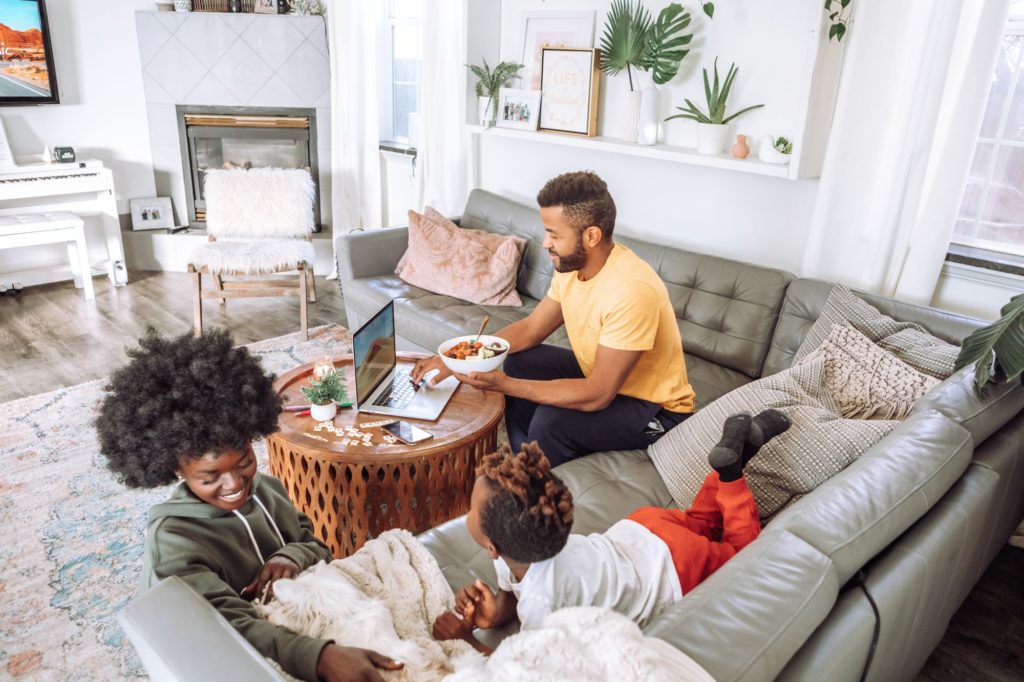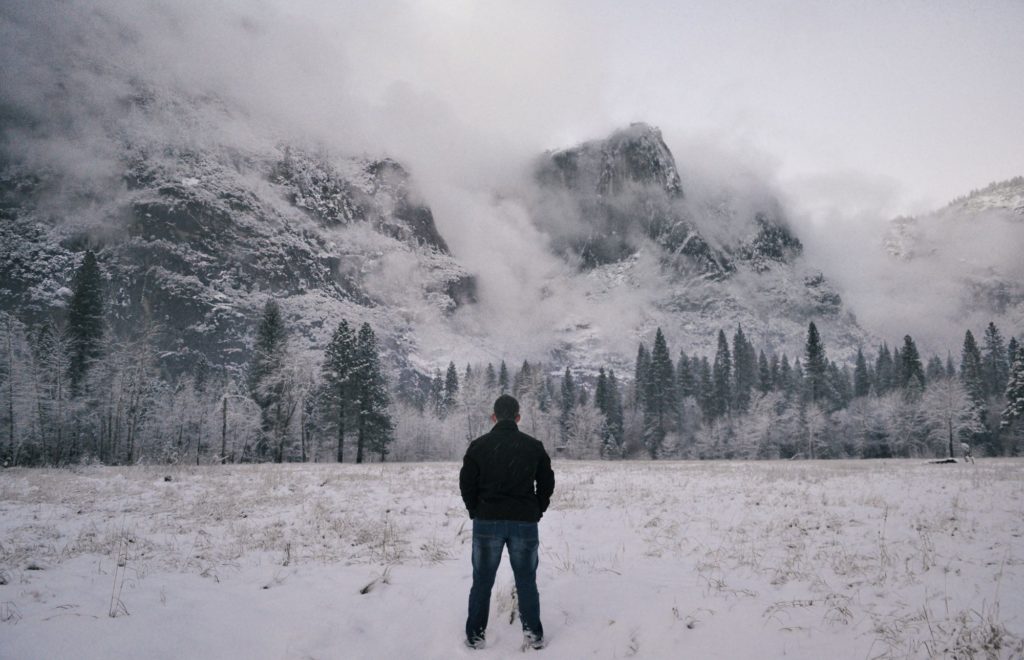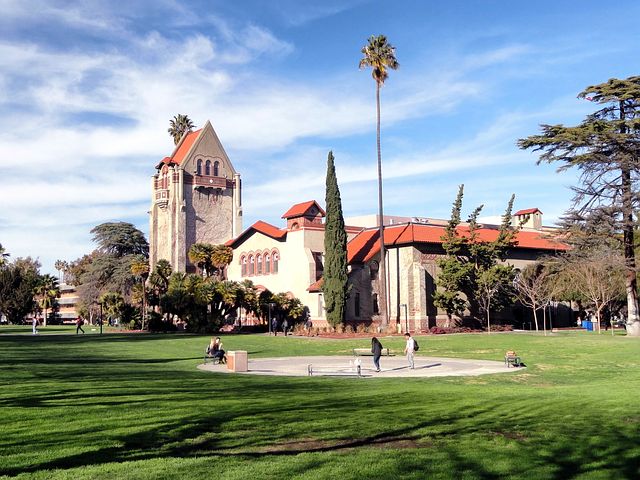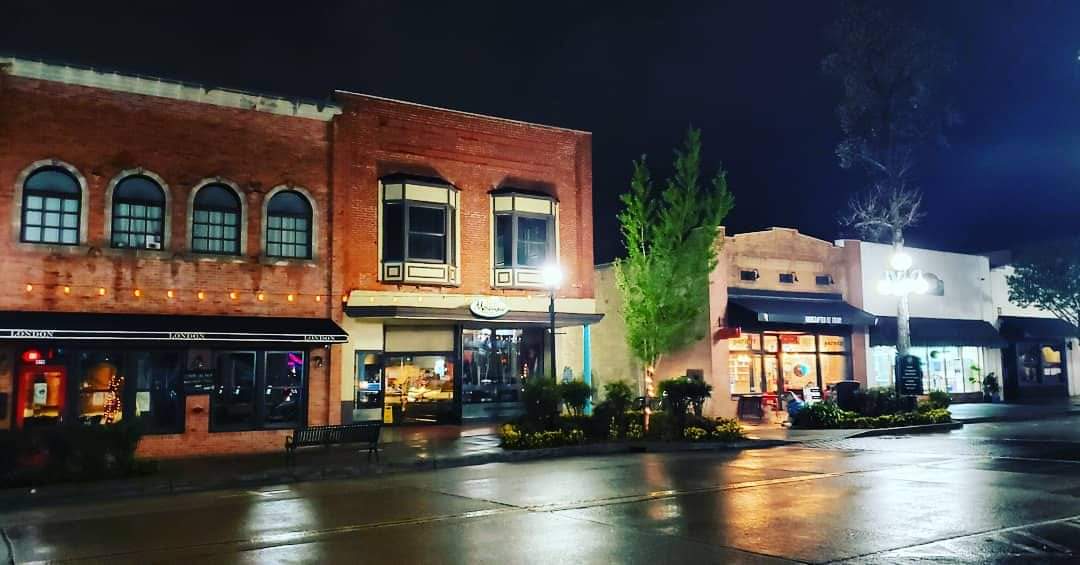The pandemic has exacerbated many of the struggles of our homeless and unhoused neighbors; the search for housing and employment has become ever harder.
Single mom Rosemary* worked two jobs pre-pandemic, renting a room for herself and her toddler in a house with seven others. Each of the tenants worked different jobs and hours, so despite the numbers, the living arrangement worked, since they weren’t all at the house at once. However, once the pandemic hit, the house quickly became a difficult place to cohabitate. One person played music loudly during the day, disrupting those working, and she couldn’t retreat to the outdoor space to work — the internet connection didn’t reach that far.
Rosemary managed to move back home to her parents’ house over the summer, where she was able to save money despite working only one of her jobs, since it wasn’t physically possible for her to take care of her young child with both of her previous jobs. While living with her parents helped save on rent and food costs, the experience was strained and uncomfortable; her parents looked down on Rosemary for being a single mom and often made her feel like a burden. “I remember them asking me, ‘Why can’t you pull yourself up by the bootstraps?’ …Well, I was able to handle it when I had more jobs and could take [my child] to daycare.”
Towards the end of the summer, she was able to contact a friend who could rent her a room and quickly prepared to move out; but the offer suddenly fell out when the friend’s landlord unexpectedly revealed they were planning to sell the apartment instead. Rosemary spent a month searching for a new place to live, eventually finding Door of Hope, a Christian organization that provides transitional housing and other resources, with the goal of ending the cycles of homelessness and domestic violence and abuse. Door of Hope also provides its tenants meals, and their normal housing period of three to five months has been extended to nine months in response to the pandemic.
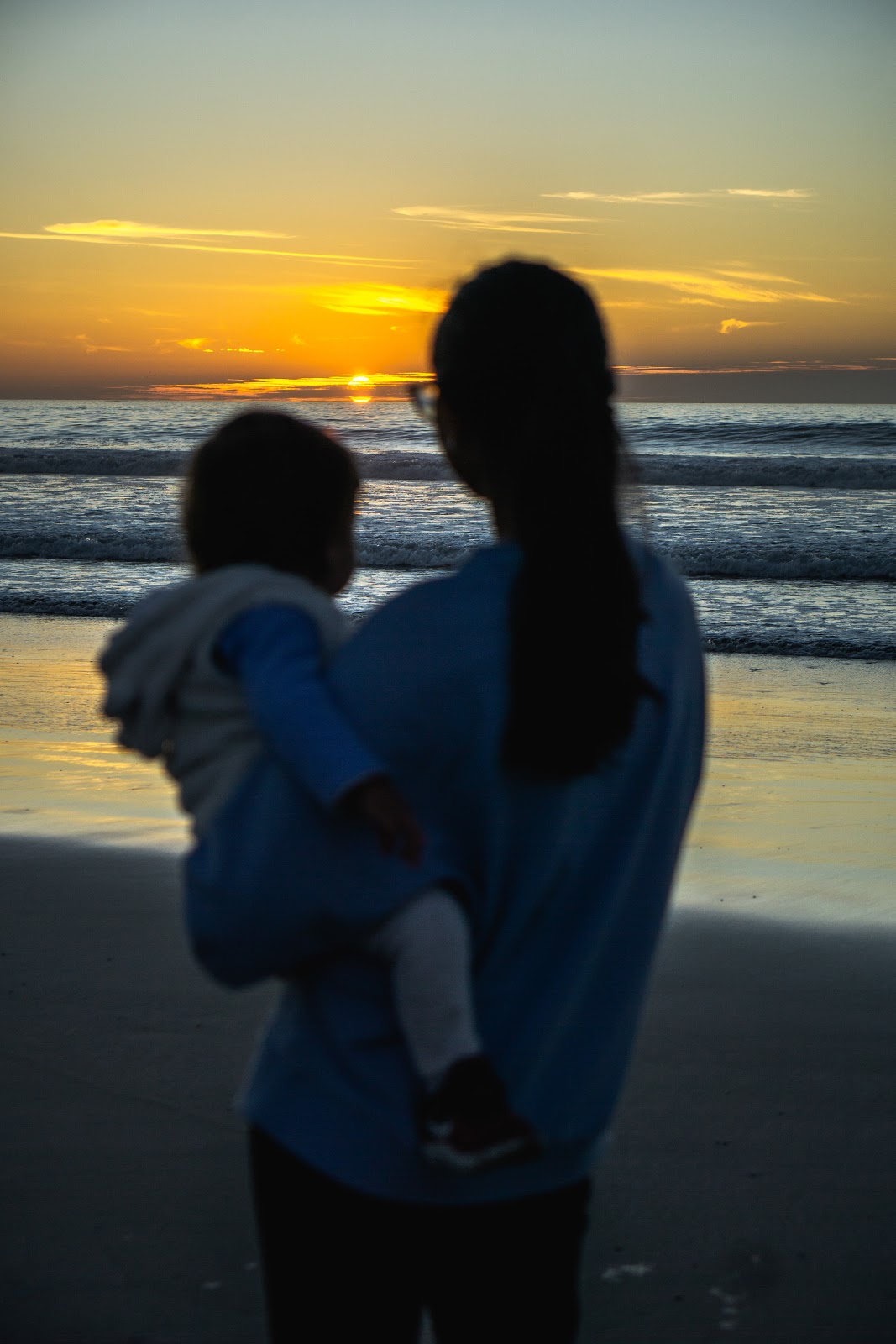
Rosemary and her toddler have their own room, and everything else is shared. The two now live in a house full of other single moms, which Rosemary is finding to be a great experience, as she can learn how other single moms handle raising their kids. Despite the rollercoaster journey she persevered through in 2020, Rosemary reflects sagely about the entire experience: “My parents live in a big house and are well off, but they’re miserable…When you’re homeless, you understand what’s truly important; and I look at my [child] and know I have everything I need.”
Rosemary’s experience with housing insecurity is one amongst thousands of others just in Los Angeles County alone. The 2020 Greater Los Angeles Homeless Counts, initially published June 12, 2020, revealed a 12.9% increase in homelessness in Los Angeles County between January 2019 to January 2020. However, this number doesn’t take into account the countless who have since likely fallen into homelessness or housing insecurity as a result of income loss from the pandemic. According to the Los Angeles Controller’s Office, the unemployment rate in Los Angeles County was 15.1% in September 2020, though the peak unemployment rate, rising above 20%, was recorded in May 2020.
A May 2020 paper from UCLA’s Luskin Institute on Inequality and Democracy suggested that an “optimistic assumption that only one tenth of households will experience homelessness leads to an estimate of 36,000 newly homeless households, including about 56,000 children,” though author, Professor Emeritus Gary Blasi, writes that “a reasonable estimate is that at least one third of those households at very high risk of being evicted (365,000) will become homeless, with no source of income.” Based on the ‘reasonable’ estimate, “we can expect to see the unhoused population of Los Angeles County grow with the addition of at least 120,000 evicted tenant households, including 184,000 children.”
The California-wide Project Roomkey, aimed at providing shelter for single adults experiencing homelessness who are at high risk for COVID-19, has been a collaborative, multi-organization effort. In Los Angeles County, Union Station Homeless Services (USHS) has partnered with the Los Angeles Homeless Services Authority (LAHSA), working on the frontlines to get people off the street and into hotel rooms, especially those at highest risk for COVID-19. Project Roomkey has been able to offer every person three meals a day, accompanied by a temperature check and verbal check-in with a nurse. USC’s Keck School of Medicine contributed to Project Roomkey by sending a team of doctors to provide medical care, and the Los Angeles County Department of Mental Health provided mental health specialists, especially to help with the isolation. LAHSA reported that “efforts to protect the most vulnerable people from COVID-19 led to the rapid sheltering of 6,010 people since the March Safer at Home order (4,056 through Project Roomkey, 1,708 in Rec and Parks shelters, and 246 in trailers) — and a goal to move 15,000 of the most vulnerable people experiencing homelessness into housing.”
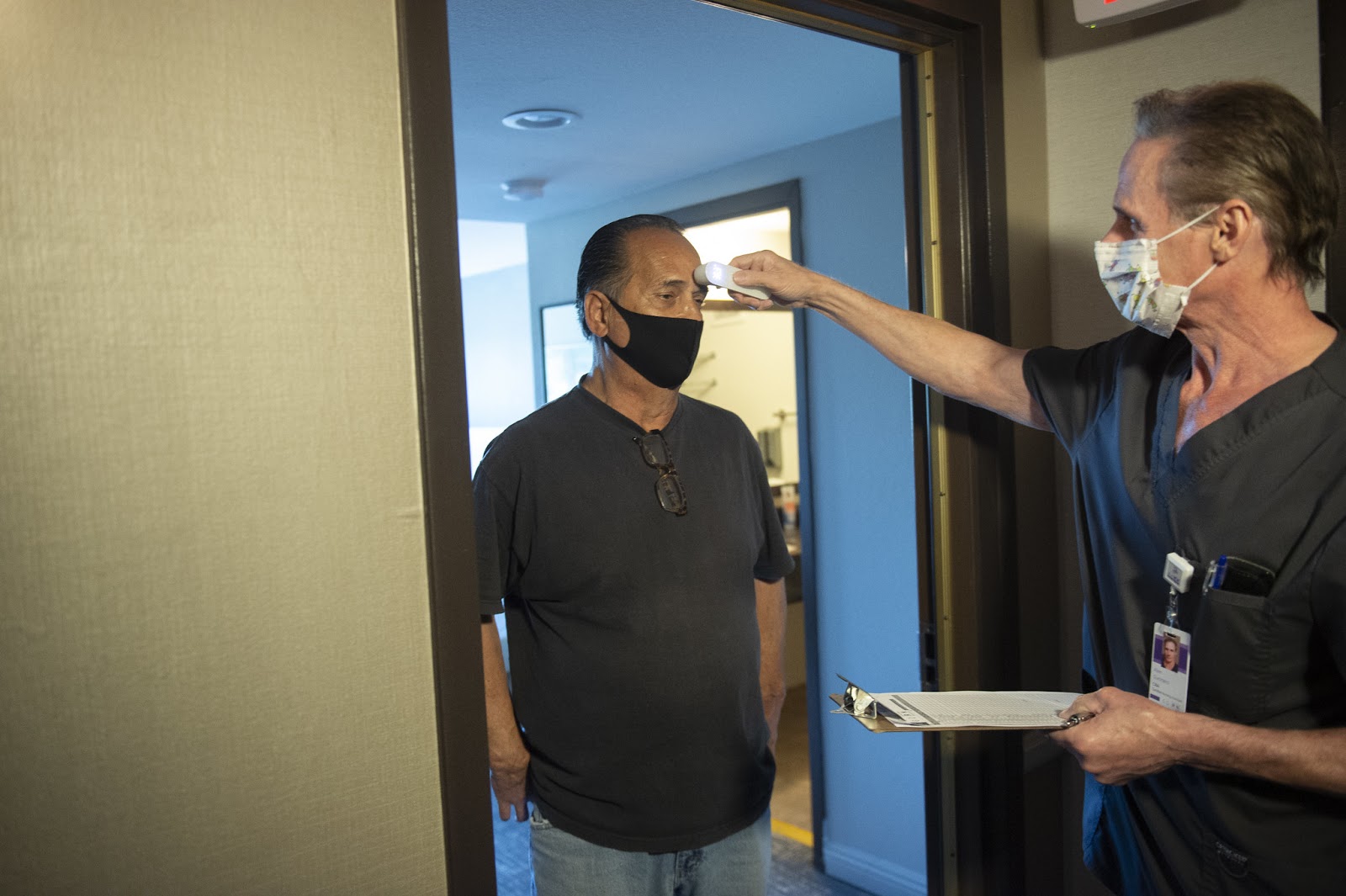
Project Roomkey is a temporary program, however, meant to alleviate the worst of the pandemic for as many homeless folks as possible; and now they are starting to transition Project Roomkey to Project Homekey, or Recovery Rehousing. USHS offers a rapid rehousing program similar to Project Homekey, for which their Interim Director of Project Roomkey, Lorena Ruiz, worked pre-COVID-19.
Union Station has been working not only to temporarily house as many people as possible through Project Roomkey but also to find them permanent housing. Ruiz was able to share some stories of a couple of gentlemen whom Union Station had recently been able to rehouse. On one of the first few days of the program’s implementation, a composed, dignified gentleman, who appeared at first to be in his 60s, approached a Project Roomkey coordinator onsite. This gentleman, Oscar, surprised the coordinator greatly by revealing himself to be 90 as he was being registered. He was swiftly moved into a hotel room and matched with a care coordinator; and recently, he even moved into his own unit.

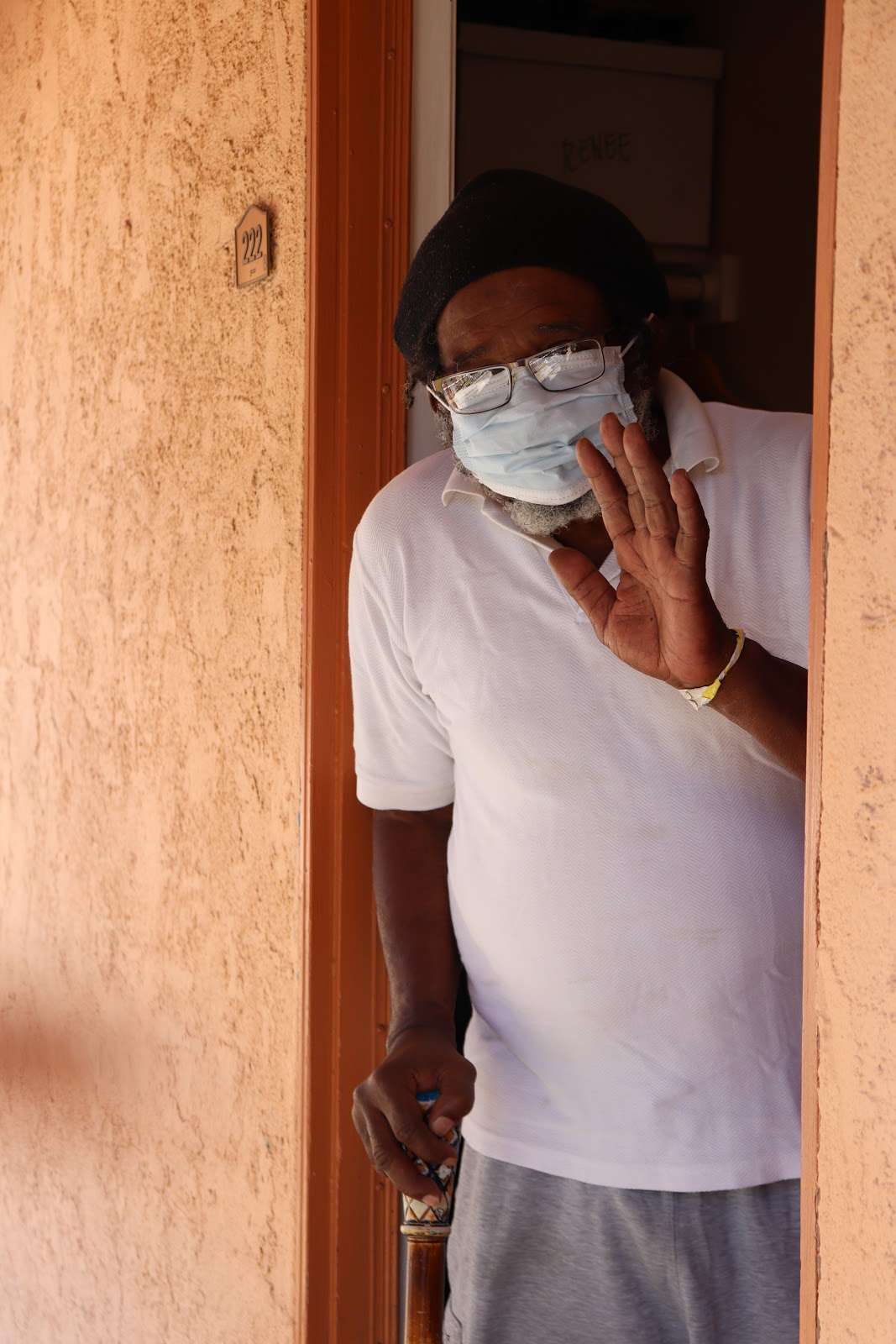
Another anonymous gentleman in his early 40s had recently become homeless right before the pandemic, finding himself sleeping on a bus bench, unable to find work. He had no phone number, no address, no way to even get to interviews. Shortly after the pandemic began, he was approached by an outreach worker for Project Roomkey and moved to a site. He was eventually connected with a care coordinator for Recovery Rehousing. When he spoke with his coordinator, he told them: “All I need is an address to give to employers so I can get a job and a safe place to sleep.” Having a stable source of food and shelter allowed him to focus on employment, and he was already so proactive in searching for employment that his care coordinator didn’t need to spend as much focus there. Early in December, he had found a unit that was affordable for him and signed his lease, and was able to spend the holidays in his own place.
While these three individuals have been able to find housing, there are still thousands who have not, and there is a lack of resources, support, and programs in place to address this crisis. However, we can all help to end homelessness: by volunteering, donating, and educating ourselves and others.
The LA Times collated a guide of volunteer opportunities over the holidays; and while the festivities are over now, these organizations could likely still use your time and aid. Right now, you could also volunteer your time by calling people and easing the isolation of lockdown by having a conversation with someone, and there are plenty of organizations in need of drivers willing to drop off groceries and essential items.
If you are a homeowner with a spare room or back house/‘granny flat’ that you are willing to rent out, Union Station always wants to partner with property owners. This direct partnership helps to protect both the landlord and the tenant.
Of course, donations are always very welcome: whether it’s a recurring online donation, gift cards to stores like Smart and Final to help with food purchases, or in-kind donations of essential hygiene products, household items, and food.
A final valuable step we can take is to educate ourselves and others on homelessness and become advocates for societal change. Union Station has an educational series and action guide called “Changing the Narrative”. There are currently two Changing the Narrative webinars, which you can watch here and here. The series and guide explain how and why housing first works, and explore what barriers there are and why they exist.
We have seen the pandemic exacerbate and highlight many of the pre-existing problems, from the ever-increasing wealth gap between the lowest-income and highest-income populations, to the strain on and limits of our healthcare systems, to racism towards BIPOC. Taking the time to educate ourselves and work to reject the norm of homelessness fits into the theme of the pandemic for many — a hard, long look at our society and what we believe in and value.
*Name changed for privacy.


